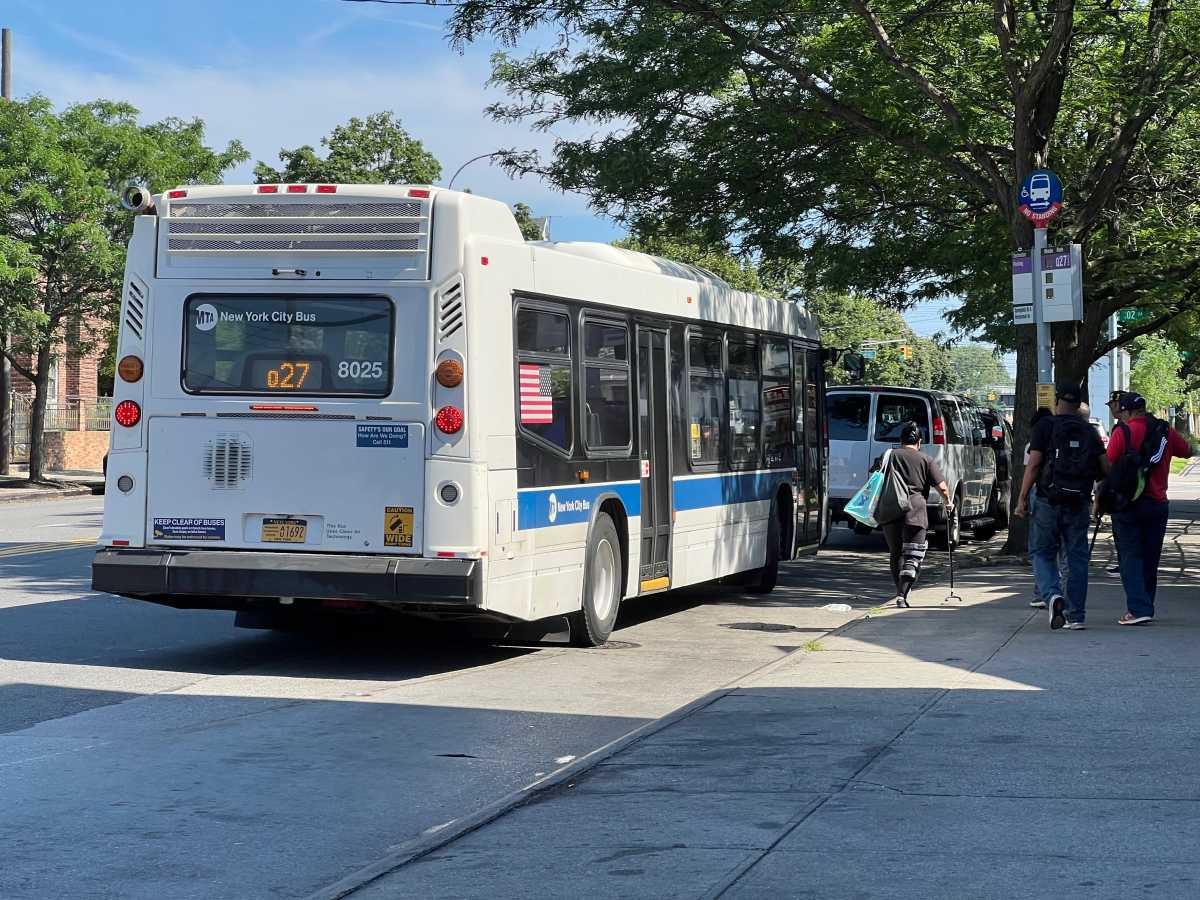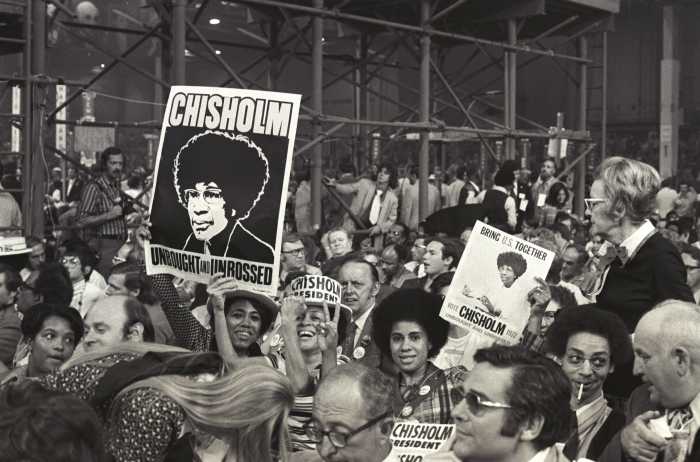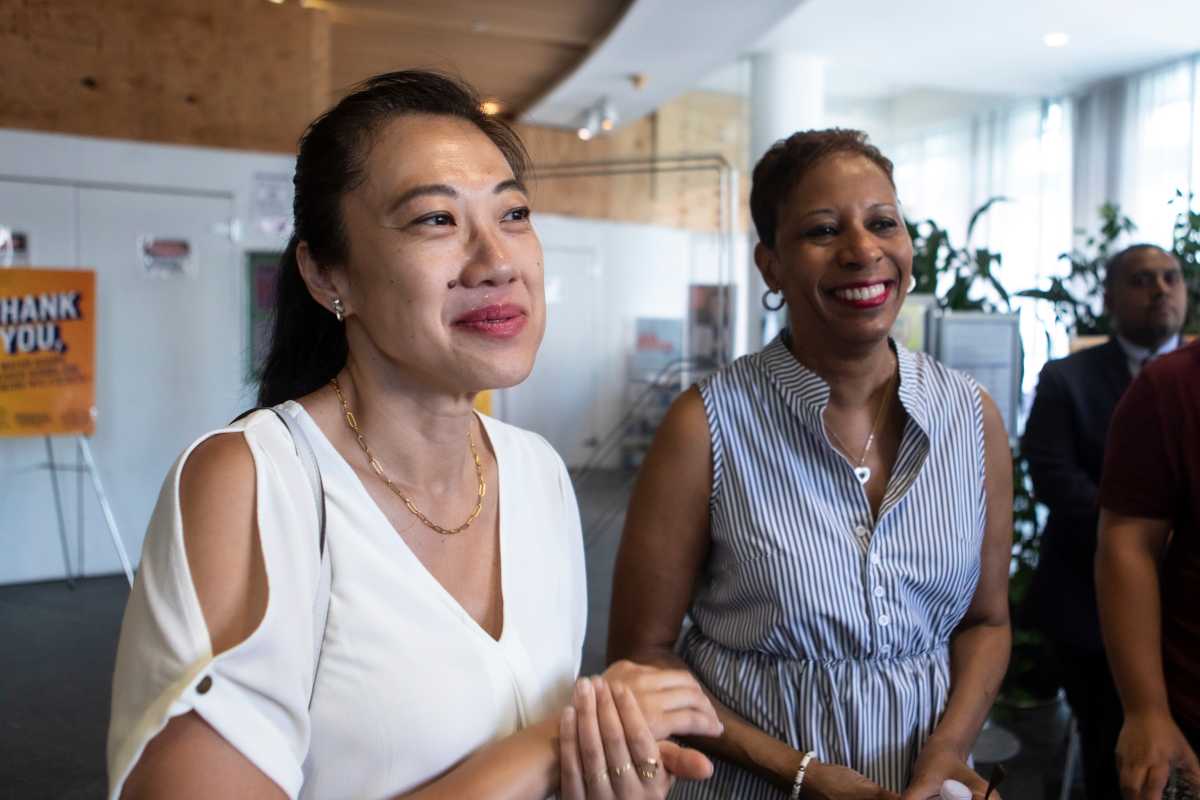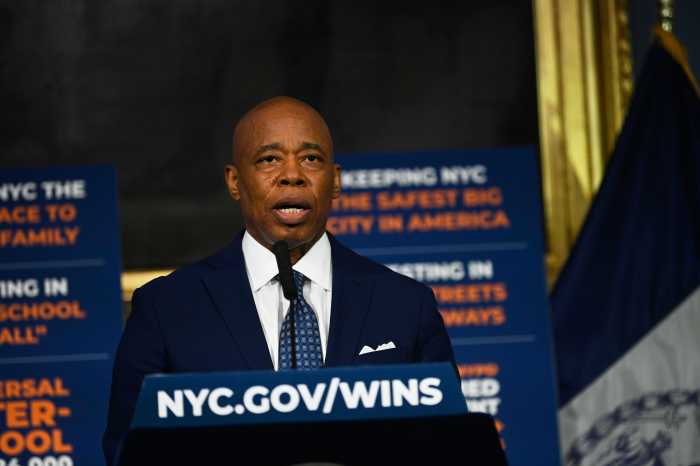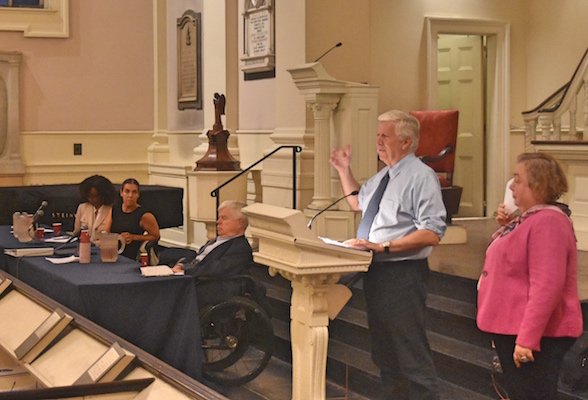
BY NATHAN RILEY | Vote against the constitutional convention this November.
The most basic reason: it is scarcely a year since Bernie Sanders showed that a resurgent left wants sweeping reforms, but babies must crawl before they can walk. The relationship among varying factions of the Democratic coalition remains strained, with many Dems still viewing Sanders as the greatest threat the nation faces. Others, of course, are convinced he’s shown the path forward. Fears of betrayal loom large on both sides of this fissure. Meanwhile, the issue of depressed turnout in African-American and Latino communities in 2016 has not fully been addressed.
In other words, Democrats and voters on the left are not united, and that’s not a good posture to go into a constitutional convention with.
EXPRESS YOURSELVES
The other big problem is step two in the con-con process. What happens after a “yes” vote? It’s almost a secret. Delegates are selected by State Senate districts — three for each of the 63 districts, plus 15 elected at-large statewide — and are paid a state senator’s salary. Given gerrymandering co-signed by both parties over decades, the State Senate is the most Republican institution in Albany. A state senator who runs for delegate doubles their salary. Even if they wish to avoid accusations of being a double dipper, they can pump up the standing of allies running for the delegate slots. A sitting state senator clearly would enjoy an upper hand in any delegate elections based in their home district.
The result will not be a people’s convention.
Political insiders will become the delegates. Elected officials, lobbyists or their allies, law school experts, and others from the establishment will write a new constitution. Which, of course, is better than it being written by a crowd of Donald Trumps.
But the insiders of 2017 and 2018 are a breed apart from the delegates who attended the constitutional convention during the Great Depression. The 1938 gathering introduced care for the needy and protected workers’ right to organize, offering constitutional protections for federal New Deal reforms. The New York Constitution is largely a progressive document.
One potential constitutional change that has been discussed would weaken government workers’ right to organize and threaten the security of their pensions. But scapegoating government employees at a time of generally stagnant wages overlooks the fact that workers in the US economy have lost ground largely due to the decline in union representation across many industries. Our society should be expanding protections for workers in the private sector rather than taking rights away from government employees. But now is not the time to open that discussion up in an unpredictable constitutional convention. The environment is not ripe for a con-con.
Another topic raised for consideration at a con-con would strip away any remaining restrictions on a woman’s right to reproductive choice, something you’d think would draw the support of Planned Parenthood for the convention. But, Robin Chappelle Golston, the group’s statewide executive director, is quoted in the Buffalo News saying, “Abandoning our legislative process for a constitutional convention risks our rights.” A con-con, she warned, would be “vulnerable to powerful special interests that do not stand for New Yorkers.”
The debate over reproductive rights has broadened in recent years to include consideration of the hurdles faced by poor women and of reproductive justice generally. The needs of poor women who choose to end a pregnancy or, alternately, choose to have a baby require policy advances, but that debate is not reflected in the organizing for the constitutional convention.
Other proposed changes would explicitly add gender identity and expression as a protected class to human rights law and broaden the state’s anemic medical marijuana program. A Siena Poll shows that roughly two-thirds of New Yorkers support both initiatives. Yet, the political debate over both ideas remains stubbornly contested, and it’s not clear a constitutional convention — particularly one based on delegates chosen by State Senate districts — would reflect the popular will. In 1938, Franklin Roosevelt had forged a New Deal consensus about reform. We are sadly lacking such direction today.
This failure in part reflects an ongoing crisis in the Democratic Party, where soul-searching has not yet given way to clear answers on economic and social justice. Without such a consensus, opting for a new constitutional convention is unwise.

Constitutional law has advanced considerably since the nation’s founders gathered in Philadelphia. Charters of human rights are incorporated into modern constitutions like Canada’s. There has been no comparable advances in thinking in Albany.
A true human rights perspective would emphasize the dignity of the individual and their right to create a narrative for their own lives. It is pro-gay, pro-trans, pro-Native peoples, pro-people who choose to use drugs recreationally. The Canadian Supreme Court, for example, after an exhaustive review, found that laws making prostitution criminal deprive women of their right to establish businesses and, critically, to guarantee their own safety against violence.
Current American drug law fosters the cutting of heroin with fentanyl. That, in turn, made opium use a contributor in more than 59,000 deaths nationally last year. Con-con supporters raise no proposals to end this legal massacre of drug users.
The reason why labor unions, environmental groups, LGBTQ political clubs, Planned Parenthood, the Working Families Party, and dozens of others progressive groups oppose a constitutional convention is that though there is opportunity for gains, the losses could be devastating. Donald Trump and Bernie Sanders have exposed stunning gaps in the American political consensus. Now is not the time write fundamental law.



